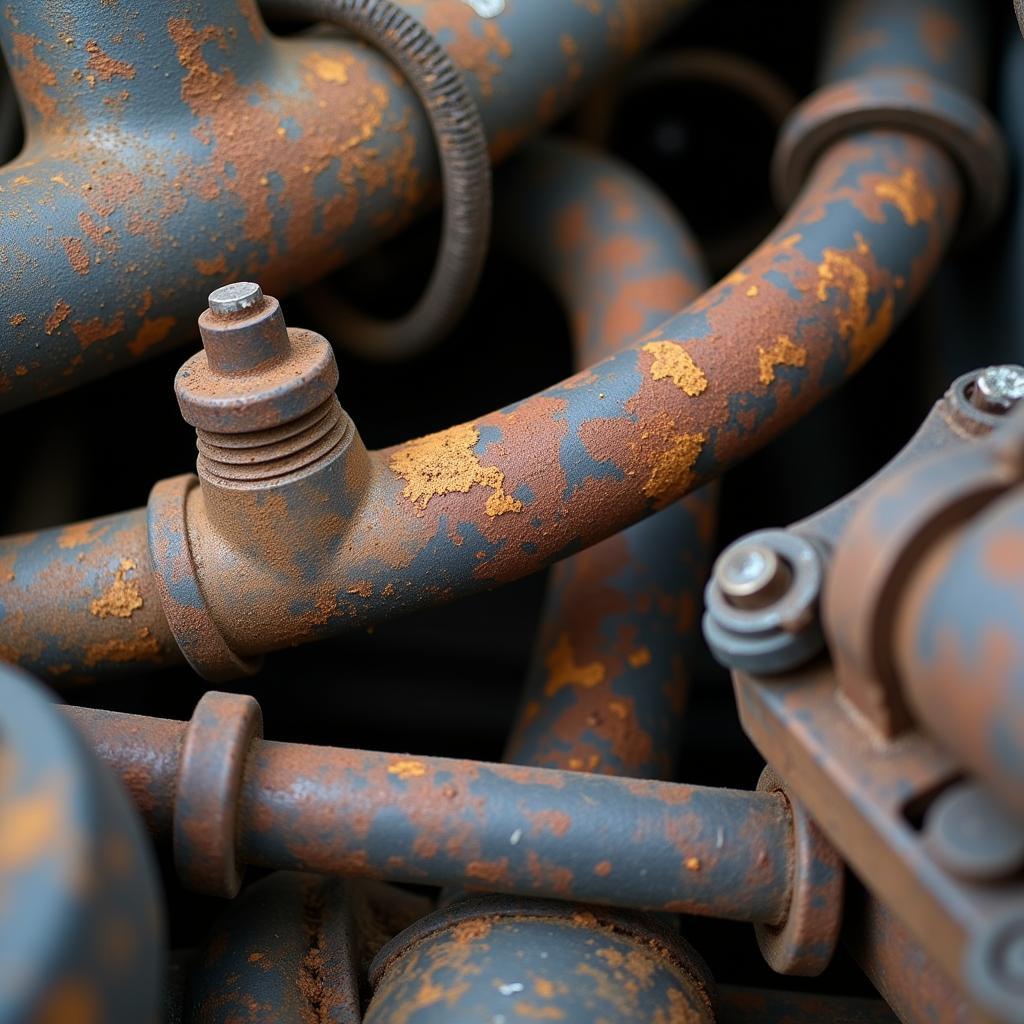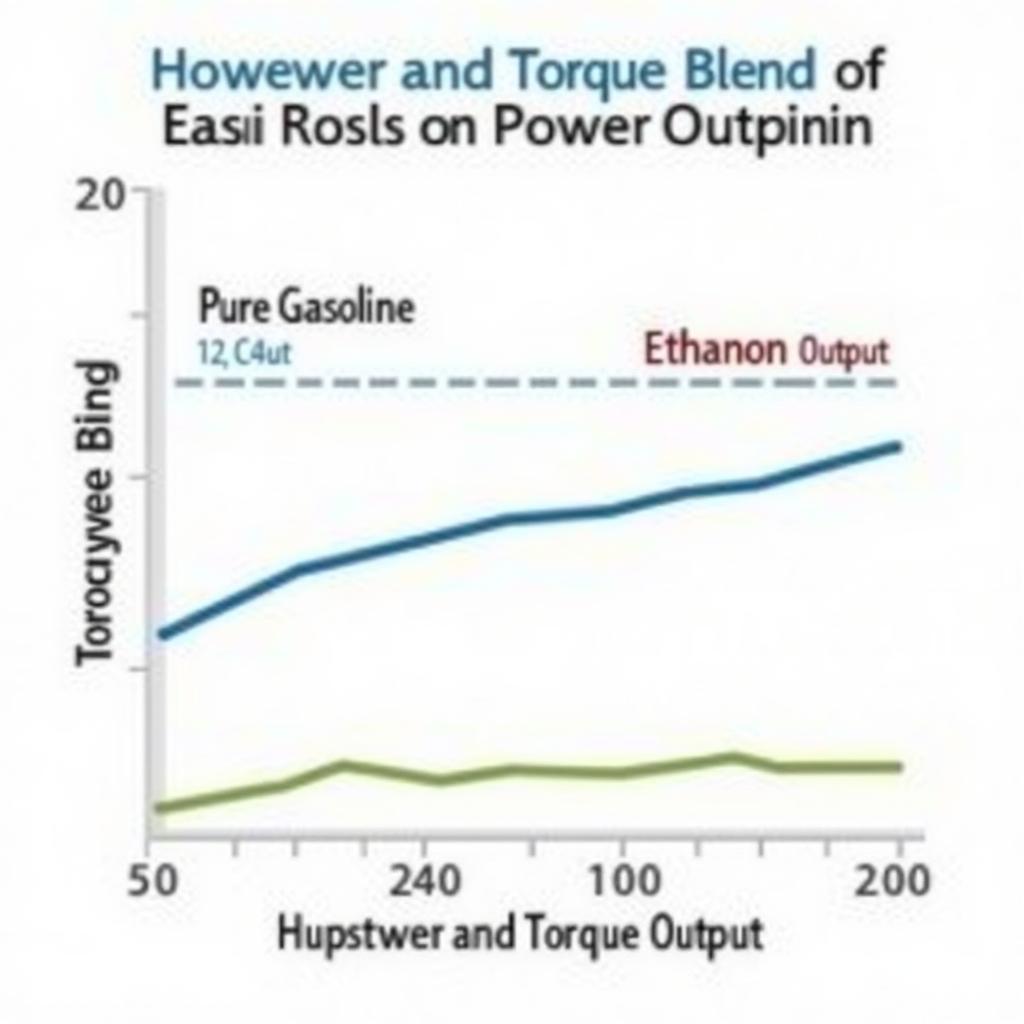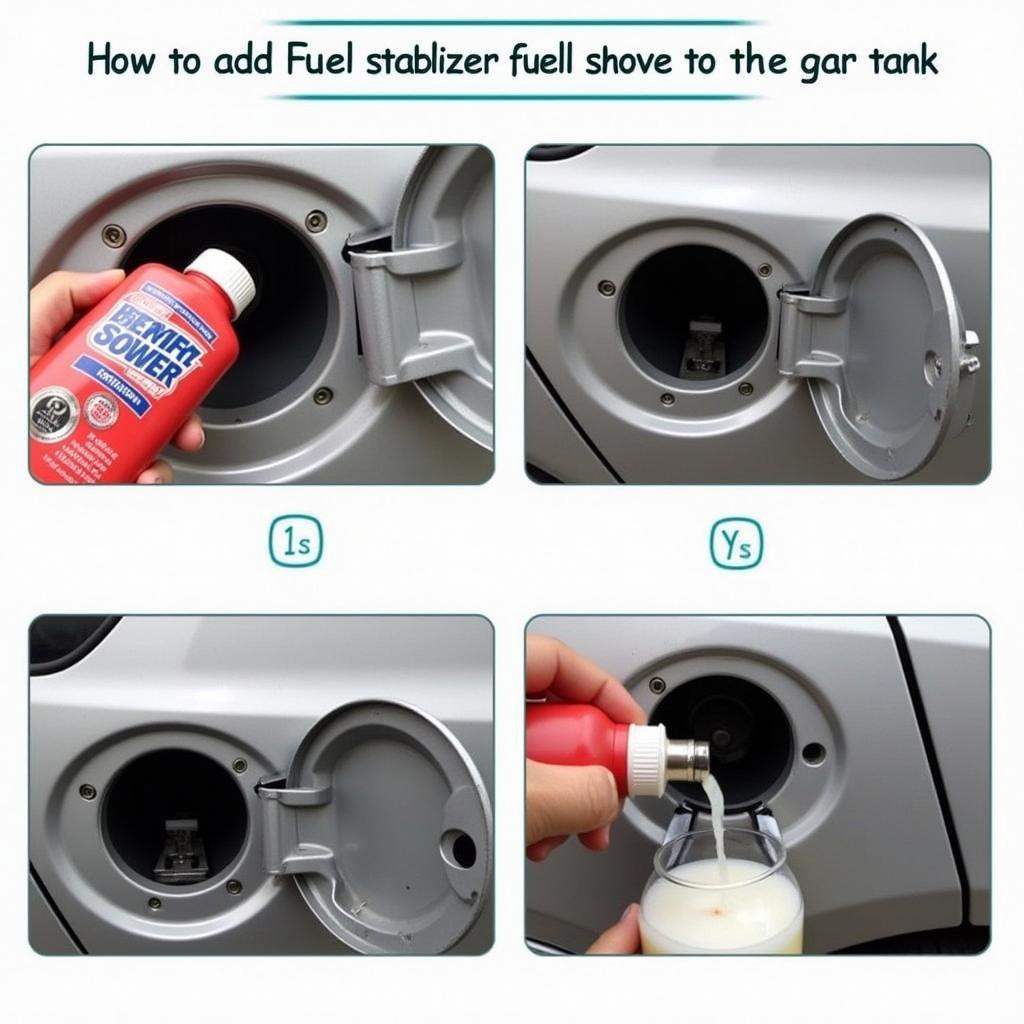Ethanol fuel, often mixed with gasoline, has become increasingly common. While it offers some benefits, it also presents unique challenges for car owners. Understanding these “Ethanol In Cars Problems” is crucial for maintaining your vehicle’s performance and longevity.
Understanding the Issues with Ethanol in Cars
Ethanol, particularly in higher concentrations like E15 (15% ethanol), can cause a range of problems in vehicles not designed for it. These issues stem from ethanol’s corrosive nature and its tendency to absorb water. This can lead to damage to fuel system components, reduced fuel economy, and even engine performance problems. Many older vehicles were not designed to handle ethanol blends beyond E10 (10% ethanol).
 Ethanol Fuel System Corrosion in Car
Ethanol Fuel System Corrosion in Car
One common issue is fuel system corrosion. Ethanol can corrode metal parts, including fuel lines, fuel tanks, and fuel pumps. This corrosion can lead to leaks, fuel contamination, and costly repairs. Another problem is the degradation of rubber seals and hoses. Ethanol can cause these components to swell, crack, and become brittle, potentially leading to fuel leaks and other issues.
environmental problems with ethanol fueled cars
How Ethanol Affects Engine Performance
Ethanol has a lower energy content than gasoline, meaning your car will likely get fewer miles per gallon when using ethanol blends. This reduced fuel economy can be significant, especially with higher ethanol concentrations. Additionally, ethanol can cause problems with engine performance, including rough idling, hesitation, and reduced power.
What are the common engine performance problems caused by ethanol? Common problems include rough idling, hesitation, and reduced power.
 Ethanol Related Engine Performance Issues
Ethanol Related Engine Performance Issues
Diagnosing and Addressing Ethanol-Related Problems
How can you tell if your car is having ethanol-related problems? Look for symptoms like reduced fuel economy, rough idling, hesitation, and the smell of varnish or fuel in the exhaust. If you suspect ethanol is causing issues, have a qualified mechanic inspect your fuel system and engine.
If ethanol-related problems are diagnosed, there are several steps you can take. Using a fuel stabilizer can help prevent corrosion and degradation of fuel system components. Regularly replacing your fuel filter can also help remove contaminants and prevent further issues. In some cases, replacing damaged fuel lines, hoses, or other components may be necessary.
“Regular maintenance and using the correct fuel type for your vehicle are crucial for preventing ethanol-related problems,” says John Miller, a certified automotive technician with over 20 years of experience.
 Applying Ethanol Fuel Stabilizer
Applying Ethanol Fuel Stabilizer
Preventing Ethanol Problems in Your Car
What’s the best way to prevent ethanol-related car problems? The best way to prevent problems is to use the correct fuel for your vehicle as recommended by the manufacturer. If your car is not designed for higher ethanol blends like E15, avoid using them.
“Choosing the correct fuel can save you time and money in the long run,” adds Miller. “It can also prevent potential damage to your vehicle’s engine and fuel system.”
Maintaining Your Car with Ethanol Fuel
Even if you use the correct fuel, regular maintenance is essential. This includes regular oil changes, checking and replacing fuel filters, and inspecting fuel lines and hoses for signs of wear or damage. Staying proactive can help prevent small problems from becoming major headaches down the road.
In conclusion, understanding the potential problems associated with ethanol in cars is essential for any car owner. By being aware of the issues, taking preventative measures, and addressing problems promptly, you can keep your car running smoothly and avoid costly repairs. For further assistance or personalized advice, feel free to contact us at AutoTipPro. Our phone number is +1 (641) 206-8880, and our office is located at 500 N St Mary’s St, San Antonio, TX 78205, United States.




Leave a Reply